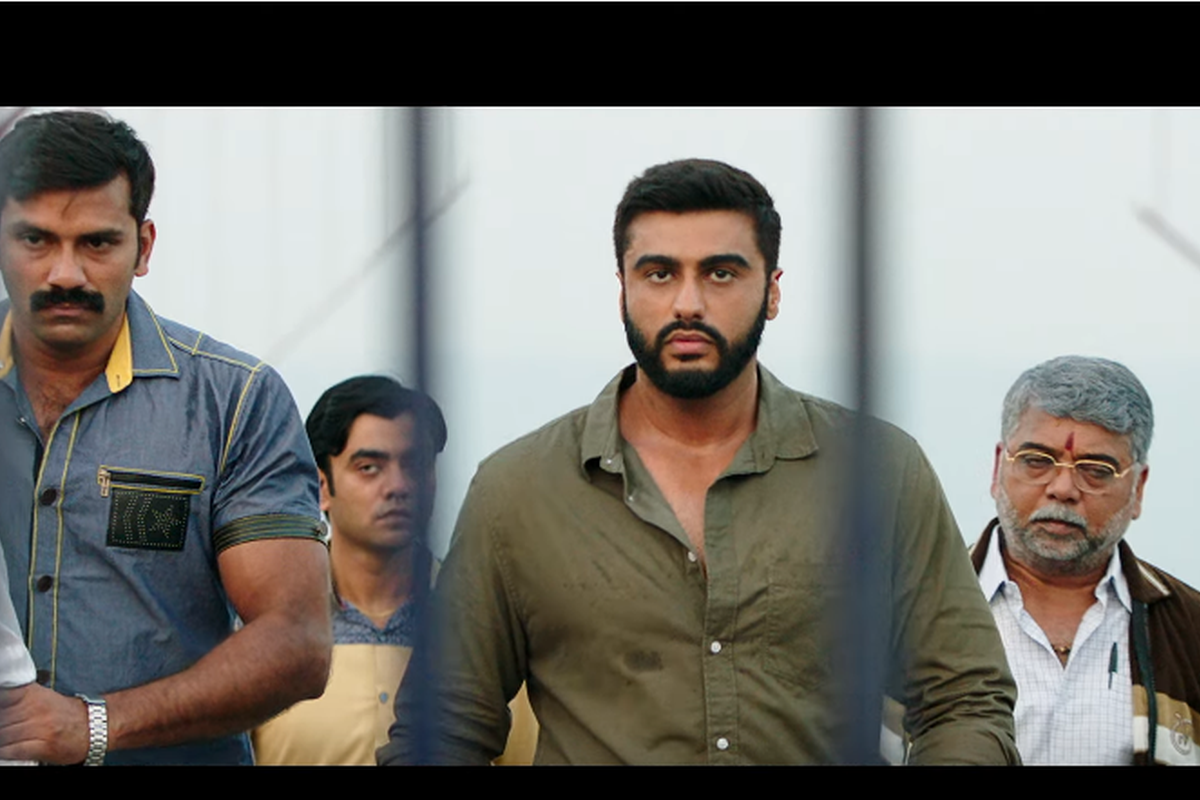Arjun Kapoor gets nostalgic as ‘2 States’ hits 10-year mark
Actor Arjun Kapoor reminisces as romantic drama '2 States' celebrates its 10th anniversary, sharing a heartfelt tribute on social media.
Taking forward Neeraj Pandey’s filmography, Raj Kumar Gupta does nothing new but paints nationalism blue or green.

( Photo: YouTube/@FoxStarHindi)
Film: India’s Most Wanted
Director: Raj Kumar Gupta
Cast: Arjun Kapoor, Rajesh Sharma ,Prashanth Alexander, Shantilal Mukherjee
Advertisement
Rating: 1.5
India’s Most Wanted seems to have changed the narrative of suspense spy thrillers. It is not so because the film is too slow for this genre, but also because of the way it portrays the spy-as-we-know-it.
Films of this genre, though popular culture, have set standards with their use of action sequences; fit agile spies who are always two steps ahead of the villain; flashy cars; sweat-gore-blood and most of all the pace of the films. From James Bond to Mission Impossible, to John Abraham’s films, the benchmark is really high.
However, this Arjun Kapoor starrer changes all that. The spy most usually has an interesting back story, always. But Prabhat (Arjun Kapoor) has none — perhaps a smart decision on the director’s part knowing the actor will not be able to do justice to a psychologically complex role.
A group of four men who accompany him in the covert operation that the Bihar IB branch undertakes to nab India’s Osama from Nepal, in what looked like a reconstruction of the extradition of terrorist Yasin Bhatkal, was something out of the ordinary. It looked a group of retired five cricket club friends who meet each other once a week to sit and chat about their daily lives and struggles — The Sunset Club type scenario. Only that these men are in fact IB agents leading normal lives.
The first half of the film really had a dose of cringe worthy moments. Viewers will have to be patient as the film builds up and fares better in the second half.
The slow monotony of the film amplified by Arjun Kapoor’s acting-no-acting was punctured repeatedly with the screen going blank at the sound of bomb blasts and real carnage pictures. This was, perhaps, done to add some action to the film and to keep the audiences from dozing off.
The film’s apparent motto looked to prove “all goes well with the good guys in the end”. Everything is positive, and goes well with the Indian spy team. The lead that invited Prabhat and his team is fair, there is no double-crossing (though there is a hint of it), all are either genuinely good or genuinely bad. Nothing goes wrong in the covert operation, and even though the ISI and radicals are looking for the IB team in Nepal, the latter is always one step ahead.
No confrontation and no tension — the film does without two major components that form the backbone of this genre. And the suspense spy thriller had neither suspense, nor thrill. The only intensity viewers can see is in Arjun Kapoor’s anger, directed at the red tape in Delhi. For instance, right when he is standing outside the terrorist’s house to nab him, there is ISI of Pakistan just minutes away from catching up, and he is waiting for orders from the chief — trying to follow protocol at the climactic moment when the entire film is in fact about people who do not follow orders. At least at that moment, one thought he would finally lose calm and do something. But all he does is make a phone call.
Kapoor directs his anger only at the terrorist on whom he pounces and the “ghar-mein-ghuskar-ghaseet-kar-lekar-jana” narrative from Uri comes into force here, literally.
Music is another problem. Weird Jazzy tracks come up in the middle of serious scenes, or happy tracks in sad scenes. For instance, whenever Prabhat is angry some bad music score plays in the background as if to calm him down, literally.
The new “Vande Mataram” rendition however went well with the slow pace of the film. It was different in terms of treatment of the hyper-intensive jingoistic material that sells these days.
“Dilbar Jani” is a great track, but why was it there in the film is something one may ask.
At some moments, it’s like the film is in fact a satire or rather a spoof of films that are made with a patriotic message or bend. But Arjun Kapoor’s stoic face reappears to tell that the film is about serious stuff, per se.
Another thing that was most in the face was no use of weapons. This is where ideology seeped in. Arjun Kapoor is playing the composed non-violent die-hard patriot spy, a Gandhian Realism ideologue in contrast to India’s Osama, who uses weapons and arms to kill innocent people. The battle is won in the end when Prabhat establishes this with the one-liner that he greets the terrorist with when they first talk.
“Bekasuron ke jaan lene wala puri insaniyat ka kaatil hota hai, aur kisi ek ki jaan bachana, insaniyat kehlata hai.”
In all, India’s Most Wanted is a new kind of cinema; the one that realizes middle class dreams to reality using normal people as game changers. Taking forward Neeraj Pandey’s filmography, Raj Kumar Gupta does nothing new but paints nationalism blue or green.
Advertisement